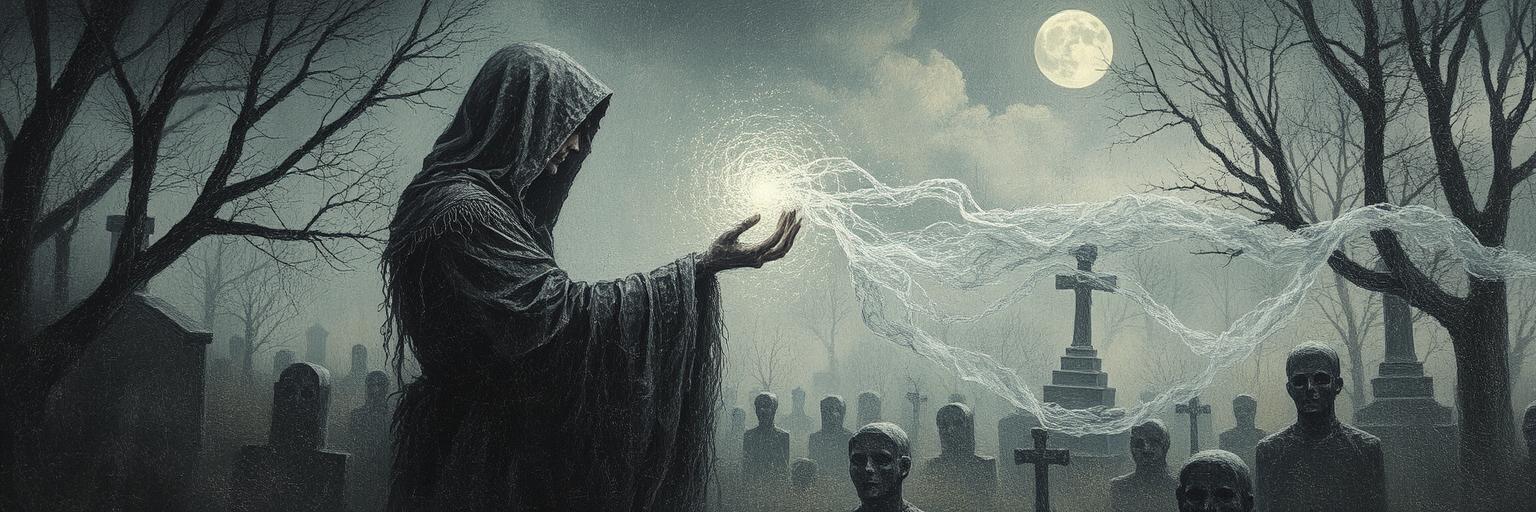Tender of the Veil
Those Who Keep the Living in Good Favor with the Dead
Werewolf religious practice is important for a number of reasons, but it is worth noting that different territories and even different clans have their own ideas about who and what God is. You might be surprised to learn that werewolf practices range from deeply pagan to distinctly Christian!
A clan's practices generally reflect the amount of human influence on the particular clan, either demanding more secretive spiritual practices or integrated spiritual practices that adapt human religion to werewolf ideals and needs. Over time, each religion became more distinct, with only a handful of important carry-overs from one religion to another.
One of those carry-overs is the Tender of the Veil, a priest-like figure who maintains the connection between the living and their ancestors. Most clans have at least one Tender, and those clans that do not frequently borrow a Tender from another pack.
There are far more ancestors than there are of us, the living. We must honor them and maintain our alliances, for they have the power to blacken the land.
All werewolves, regardless of their proximity to what man calls "civilization," require the balance between the living and the dead to be maintained. Because the dead far outnumber the living, it is believed that in order to maintain the balance, relationships that cross the veil must be carefully maintained.
For example, one of the most important aspects of werewolf belief is that wolves who become untethered from a pack become dangerous Hollows, who seek to create more like them by luring young wolves away from their packs. A wolf becomes Hollow (a physical condition) through a process of Withering (a spiritual condition). The process always begins with the wolf forgetting who they are, starting with their place in the pack and ending with them forgetting their own name.
Urban Areas
Suburban (and urban) werewolves have often already begun the withering process, though it is likely to remain in a single state for an ongoing period of time. This is because wolves who are spiritually and historically distanced from the land begin to forget themselves. In a way, the withering begins for all suburban werewolves, but then reaches a point of stasis, where it remains the same for many years (or even a lifetime) without treatment.
The more urbanization takes place in a werewolf territory, the less the wolves inhabiting this territory connect to the Root (the other half of the primary werewolf religious tradition, known as The Faith of the Root & the Veil). Some spiritual leaders would even argue that they are becoming something different. Something frightening to "wolves in their right minds."
Here, Tenders have less formal training. They are often attracted to cemeteries and graveyards, following the call of their ancestors (what many refer to as "instinct") to maintain the balance. It is difficult for these tenders to convince their clan congregation of the need to remember their ancestors, and therefore, the more suburban the werewolf territory, the greater the struggle for balance within it.
Rural Areas
With two notable exceptions, the majority of rural werewolf clans follow the Faith of the Root & the Veil, worshiping the Root and actively honoring their ancestors through ritual practice, which includes the highly-trained Tenders of the Veil who live within the clans. In these environments, the Tenders are among the most respected of the Clan's clergy, as they maintain the important connection between who the clan was, and what it is becoming.
Tenders of the Veil in rural settings handle both births and funerals, as each is believed to remain in balance in order to keep the Earth producing and the werewolf species both hidden and thriving. At the time of birth, a Tender will take something small, like a clipping of hair or fingernail, and bury it along with something that belonged to the newborn's ancestor. This is a way of connecting the brand-new with the deceased.
When an old one dies, their belongings are packed away for ritual purposes, and their name is written in the Werewolf Tender's Book of Life. When whelps reach school age, they are required to begin memorizing the names of their ancestors, for it is believed that even ancestors can wither.



Comments